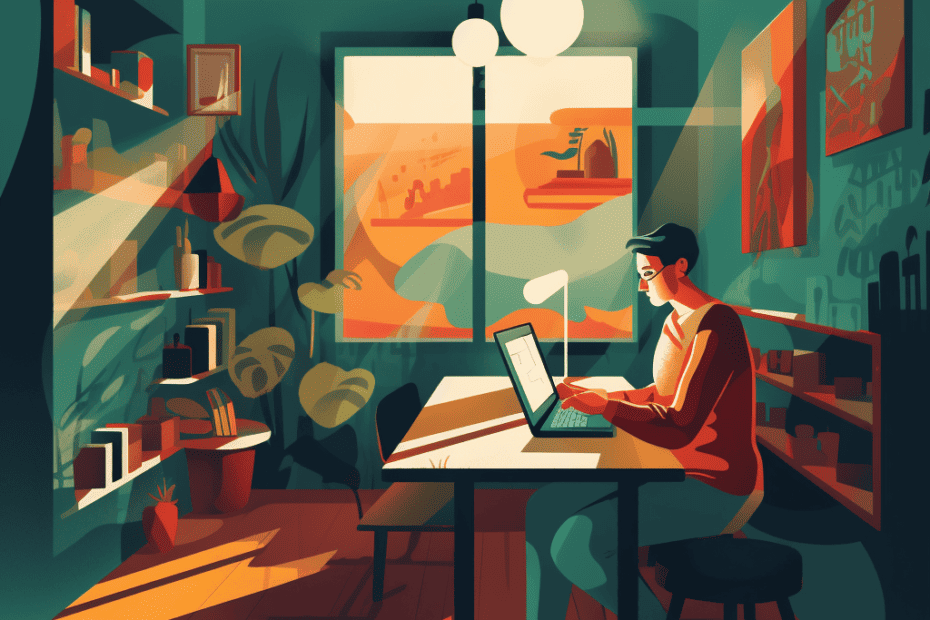I’m Leeland Artra, a science-fiction and science-fantasy author and entrepreneur. I have a deep passion for empowering authors like you with the knowledge and tools to navigate the evolving landscape of authorship. In today’s rapidly changing world, AI and machine learning (ML) are revolutionizing every sector, including writing. I hope these advancements will empower you as much as they have empowered me.
The Impact of AI in Writing
One of the most significant developments in the writing field is the emergence of large language models (LLMs). These models can generate text that resembles human-like writing, potentially reshaping how authors approach their craft and enhance their capabilities.
Historically, humans have often resisted technological advancement. In his book “Connections,” James Burke recounts numerous instances of such resistance. People have expressed fears about everything from subways and telephones to elevators and trains. My own mother worried that television and computer games would have adverse effects. Yet today, we embrace these technologies, demonstrating our capacity to adapt.
Embracing the Role of AI-Aided Author
So, what is an AI-Aided Author? Much like an artisan who uses advanced tools to create works of art, an AI-Aided Author uses AI as a tool to enhance their writing. This does not remove the creative nature of writing; instead, it can enhance it. Using AI tools for writing is no different from carpenters using power tools to create their work. Carpenters use circular saws, routers, power drills, power sanders, and other advanced tools. We, as authors, use tools that include thesauruses, dictionaries, historical references, grammar tools, Google, and many others. The new AIs are simply more advanced thought tools as far above their paper and ink descendants as the precision laser cutter system is above the stone chisel.
My Personal Experience with AI and Writing
I started my journey with ML in 2020, using it to generate random ideas for my role-playing games. By 2022, I was using ML to create fascinating adventures and write outlines for pulp fiction novellas. My background in databases, virtual computing, cloud systems, and machine learning allowed me to adapt to using LLMs in my writing.
March 2023 was a major turning point for me. With OpenAI’s GPT-4 availability, I felt like I had gained a junior writing partner. The AI tool could take my ideas, structured prompts, and writing style, generating text faster than I ever could. This process became so engaging that I found it more enjoyable than writing solo.
The Promise and Challenges of AI in Writing
Yet, it’s important to remember that a deluge of words doesn’t guarantee a captivating story or an engaging non-fiction book. Writing remains a craft, with word generation being just one aspect. AI tools challenge our traditional notions of being writers, prompting us to redefine our roles in this evolving landscape.
However, embracing AI as a collaborator opens up new possibilities for boosting productivity, enhancing storytelling, and pushing the boundaries of our creative potential. There are valid concerns about copyright infringement, plagiarism, and the loss of human touch, but I believe that if we see AI as a collaborator, we can harness its power to revolutionize our craft.
Navigating the Future of AI-Aided Authorship
As an AI-Aided Author, I use AI as a creative partner. I decide on the subject, use AI tools, edit the output, and imbue the work with deeper human meaning. This approach allows me to maintain my unique voice while leveraging AI’s capabilities. I believe that technology is a tool, not a replacement for human creativity.
The advent of AI-supported authorship has posed challenging questions about self-perception and our roles as authors. It’s crucial to remember that writing is more than a hobby or a job; it’s an inherent part of who we are, a uniquely human privilege that transcends the capabilities of machines. Incorporating AI in my writing process has enhanced the joy I derive from the craft. It serves as a tool and co-creator, assisting me in brainstorming, plotting, and drafting. However, the final touch, the essence of the story, and the emotion it carries are all mine. This collaboration allows me to maintain my creative identity while benefiting from AI’s innovations.
Harnessing the Power of AI in Writing
Being an AI-Aided Author doesn’t mean relinquishing your creativity or losing your unique voice. It’s about harnessing the power of AI to enhance your writing process and create works richly textured with your personal experiences and insights.
As we embrace AI, it’s vital to remember what makes us unique as authors – our human experiences, emotions, capacity for empathy and understanding, and our ability to interpret and narrate the human condition in ways AI cannot.
The Journey Ahead: Embracing AI in Your Writing
As an AI-Aided Author, I’m pushing the boundaries of my existing creative process and embarking on an ongoing adventure with AI in my fiction writing. This new wave of technology presents an exciting opportunity for us to redefine our roles and adapt to the changing landscape of authorship.
So, are you ready to embrace the potential of AI and take your writing to new heights? Join me in this exploration of self and craft in the AI era. As AI continues to shape society, creativity, and art, it’s crucial for us, as authors, to actively engage in shaping this future. Together, we can redefine what it means to be an author in this exciting era of AI-supported authorship.
